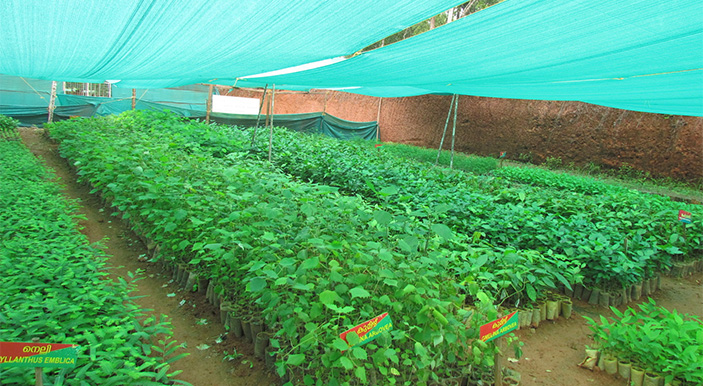RCE Kozhikode

 Overview
Overview
The Malabar Botanical Garden and Institute for Plant Sciences (MBGIPS), Kozhikode is a garden-based research and development institution of the Government of Kerala, administered by the Kerala State Council for Science, Technology and Environment (KSCSTE). The garden is dedicated to the conservation of aquatic plant resources and lower groups of plants, their sustainable use and the dissemination of knowledge through R&D activities as well as training and education. It is open to students for eco-education and to the public as part of promoting scientific tourism in the region. The educational value of the Garden lies with the different sections and plants as well as the ex situ conservation methods of these plants.
Various research programmes such as studies in taxonomy, microbiology, medicinal and aquatic plants use, and oil and plastic degrading bacteria are carried out at MBGIPS. The Institute has also made steps to bridge science and society by implementing a series of community programmes in collaboration with the local self-governing bodies. Raising 50,000 seedlings of various plants for distribution to the public in connection with the World Environment Day was one example. Other programmes include water management, planting avenue trees, geo-textile matting and maintaining clean homes and surroundings. ‘Varshakaala Pachakkarithottam’ is one programme in association with the Agriculture Department, where 30,000 vegetable seedlings were raised and distributed for setting up 1,000 vegetable gardens in Olavanna Grama Panchayat.
Another important programme focusses on rural empowerment through technology intervention. Funded by the Kerala State Youth Welfare Board, unemployed women of the Olavanna Panchayat area are trained in mushroom cultivation, vermin composting, and nursery training. Currently the Institute is in the process of establishing an Aquatic Biopark to focus on watershed management, conservation, eco-tourism and eco-education.
Other science education programmes such as national biodiversity seminars are also taught at MBGIPS on a yearly basis. Here students learn pot tray nursery, how to create model medicinal gardens, and herbarium techniques. The various conservatories at MBGIPS are enriched with collections of various species from different parts of the state and country. In-vitro gen-bank facilities strengthen the ecosystem restoration programmes, and so far the Institute has successfully established the micro-propagation and reintroduction of five rare and endangered plants.
 Activities
Activities
 Communication Channels
Communication Channels
 Contact Details
Contact Details




